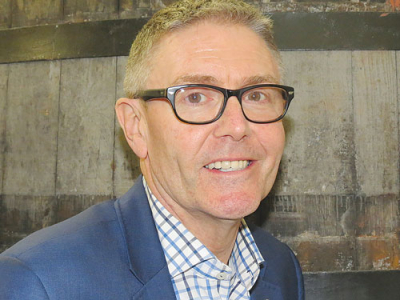Timing wrong for minimum wage rise
The EMA says the long-planned minimum wage increase to $20 per hour is coming at precisely the wrong time for some of its members and many other New Zealand businesses.
“Not raising the minimum wage was the second most requested change the government could make to assist business in the current environment in our just completed annual member survey,” says Chief Executive Brett O’Riley.

“But you also have to look at the cumulative costs being applied to many struggling businesses with an additional five days of sick leave also planned for next year and another public holiday being floated. These additional costs are coming at precisely the wrong time with many businesses still just hanging on and many predictions suggesting the most uncertain period for business will be in the first quarter of 2021.”
The EMA’s survey also found 82 per cent of its members would suffer impacts from the additional sick leave.
“It’s encouraging that the economy is doing much better than expected but that doesn’t hide the fact we are not doing as well as we would like, and debt levels are soaring. Sectors such as tourism and accommodation are heading into a period where 70 to 80 per cent of their customers aren’t going to turn up because our borders remain firmly shut to them and to the large cohort of export dollar-generating international students.”
Mr O’Riley says the EMA would rather work with Government, the unions, and businesses on improving productivity, and increasing skills in the workforce as a pathway to raising wages.
“Simply raising wages does not improve productivity. As it is now, we’re aware of members who are not hiring younger people or who are choosing other options as minimum wage increases make the case for further automation at the expense of hiring people. You can see the impact in the sharp rise in the number of NEETS (mainly 18-24-year-olds Not in Employment, Education or Training) in the past couple of years.”
“New Zealand has been steadily dropping down the OECD rankings for productivity as we are slow to adopt technology, we aren’t as active in exporting as we think, and we are not as encouraging of innovation as we could be. We’ve largely relied on hard work to make productivity gains,” he says.
“Easier access to capital, more focus and funding for R&D and higher and faster depreciation rates to encourage investment in technology and software would really help business to invest in productivity-enhancing measures.”
“Most importantly we need to invest more in training our people and not just in the big, traditional institutions. More attention needs to be paid to in-work training, micro-credentials, short courses and online learning to help business transformation and boost skills, productivity and wages,” Mr O’Riley says.
“Encouragingly almost 50 per cent of our members have indicated they want to invest in upskilling their teams in the next year. That’s the pathway to higher earnings for all New Zealanders.”



